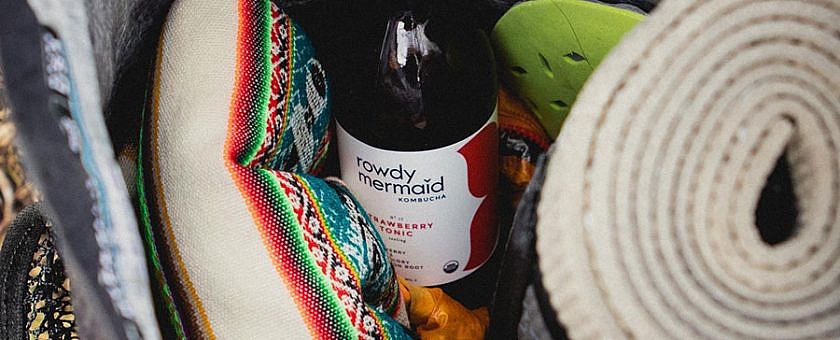
Rowdy Mermaid Raises $3.5M in Series A
- posted in: Investment
From: Bevnet
By: Brad Avery
Colorado-based kombucha maker Rowdy Mermaid has raised $3.5 million in a Series A round led by private investment firm KarpReilly, the company announced today.
Founded by CEO Jamba Dunn in 2013, Rowdy Mermaid has slowly grown from an out-of-home operation to placement in more than 500 retail stores throughout the West Coast, Rocky Mountain and Midwest regions, including Whole Foods, Natural Grocers, King Soopers and Gelson’s Markets. The company’s current product portfolio includes six SKUs that utilize functional ingredients promoting benefits such as digestion, immunity, and relaxation.
Speaking to BevNET, Dunn said the company had previously avoided fundraising by limiting its growth, turning down multiple opportunities to rapidly scale in favor of maintaining independence. He said he plans to use the new funds to hire sales and marketing specialists to expand distribution, build stronger relationships with existing retailers, and to “re-evaluate the brand and the audience.”.
By taking a slower approach, Dunn said Rowdy Mermaid struggled to find like-minded investors in the past, largely due to demands from potential backers for the brand to rapidly expand its footprint and create a strong exit valuation. Dunn, however, said KarpReilly was agreeable to Rowdy Mermaid’s mission to foster an independent brand and develop the growing market space for “functional kombucha” products.
As part of the deal, KarpReilly co-founder Allan Karp will join Rowdy Mermaid’s board of directors.
“It’s really fascinating to me to see how many big CPG companies are jumping into kombucha right out of the shoot,” Dunn said. “I guess the going strategy right now is to inject money into a small company and try to increase ACVs and go for global domination. That was never our approach, we want to continue to try to grow the business by building strong relationships and creating a better product to better serve our audience.”
According to Dunn, Rowdy Mermaid plans to build the brand’s presence in the conventional and convenience channels, but will also focus on adding food service accounts including schools and universities and vending.
“We see that there’s a lot of white space out there [for kombucha] that hasn’t been properly addressed yet,” he said. “But we think that taking the current product, and the current look and feel, that was mostly built for the natural channel and just putting that into conventional isn’t the right approach.”
Dunn said the company is also planning to switch to a clean supply chain for ingredients and adopt sustainable packaging, which might potentially involve moving away from its current 12 oz glass bottle format. Rowdy Mermaid is also working with brand strategy firms to refine the company’s target consumer base before the new packaging arrives on the market this summer.
Rowdy Mermaid also maintains an in-house genetics research lab which the company uses to study the bacteria found in kombucha in order to better control flavor, alcohol production, and sugar levels, which Dunn said was a selling point for KarpReilly and that the firm is supportive of the brand’s scientific arm.
“He really has the same desires as we do that food can change not only people, but environments as well,” Dunn said of Allan Karp. “He’s got the same desires as we do, so I look at him as a really strong partner. I can call him up at any time of the day and get his advice on the move we’re making. I don’t see it all as being somehow managed by the capital investment whatsoever.”
